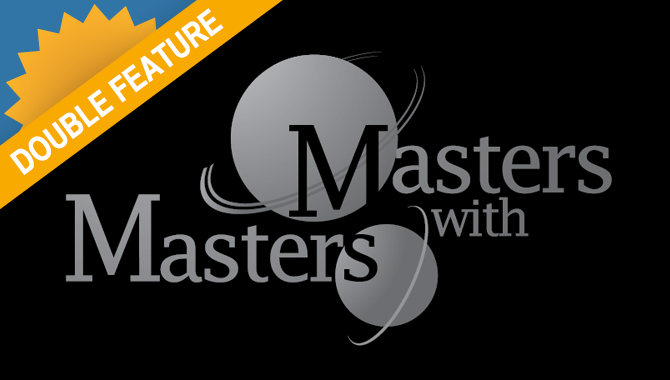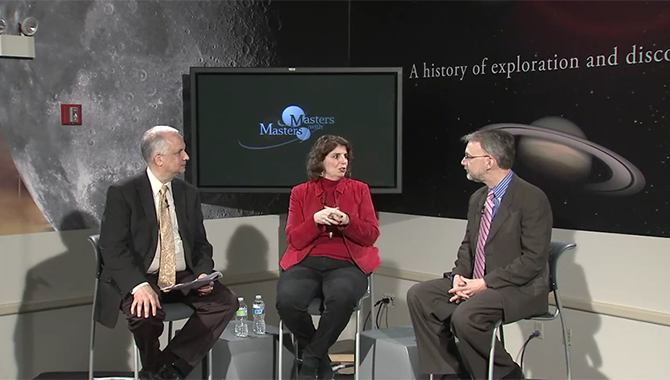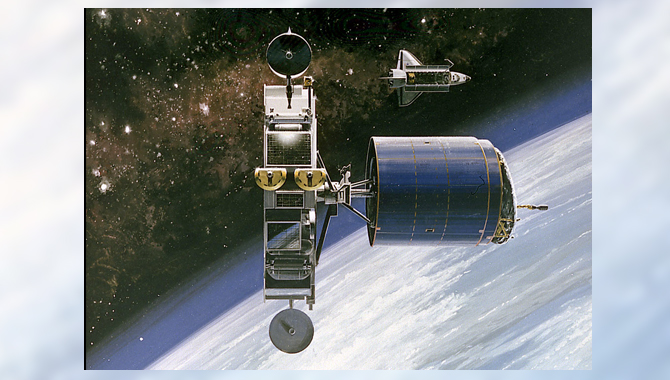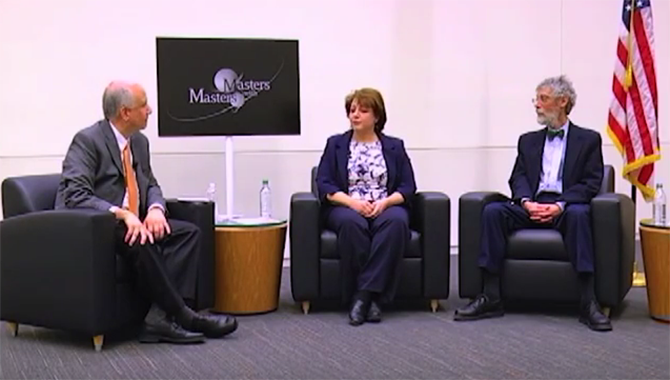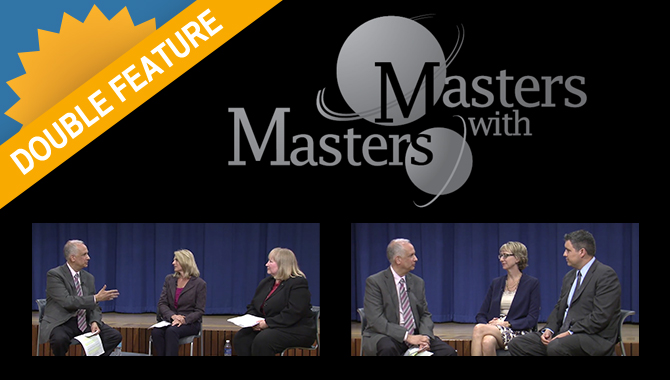
Project leadership and mentoring coincide in this Masters with Masters double feature.
Dr. Ed Hoffman, NASA Chief Knowledge Officer (CKO), interviewed four practitioners at Glenn Research Center (GRC).
Two sets of interviews highlight lessons from project leadership and mentoring. Hoffman discussed issues related to project leadership and lessons learned with Carol Ginty, Orion Program Integration Lead at the GRC, and Susan Motil, Deputy Chief of the European Service Module Integration Office for the Orion Program at GRC. The second Masters with Masters at GRC, with Therese Griebel, Director of Aeronautics at GRC, and Dr. Aaron Weaver, Orion Program Integration Lead, centered on mentoring and the lessons learned from their experiences with mentoring programs.
Masters with Masters 28 – Project leadership lessons learned with Carol Ginty and Susan Motil
Ginty began her career at NASA three decades ago as an Aerospace Engineer, conducting research on polymer matrix composites. “Researchers tend to look down and focus narrowly on a topic,” said Carol Ginty. “I kept popping my head up, and yearned for the big picture.” Her yearning for the big picture is one of the reasons behind her successful career in Project Management.
Like Ginty, Susan Motil has been with NASA for decades, much of it spent leading projects, and is currently serving as Deputy Chief of the European Service Module Integration Office for the Orion Program. In this capacity, she interfaces with the European Space Agency to ensure integration of the service module. Motil “reaches out” to create a more integrated approach to her projects. Her experiences with lessons learned from other projects has demonstrated to her that communication across boundaries leads to greater project success; informing others of what your project is about drives both interest and success. “It is important from a project perspective to get your word out… spend a lot of time networking at conferences… workshops… to understand what your challenges are.” Both Motil and Ginty stressed people at NASA and its community want to share by their very nature.
Ginty admitted, early on in her career, that she shared her knowledge through publications to advance it: “There was a little degree of publish or perish.” But she did feel an obligation to publish what NASA was learning. She shared—long before the internet made it easy—what GRC was learning about composites with other centers and with industry. She also offered that early in her career, she was instrumental in holding technology transfer workshops so she could push out the new NASA-developed technology to be further developed by industry and universities.
Motil pointed out that she was recently told that other projects are using the design reviews she developed nearly two decades ago, which she documented within the pages of ASK Magazine. Publications, found via the web, remain an important part of project leadership, especially when supported by video capture such as Masters with Masters interviews.
To watch the entire MwM 28 interview, please click here.
Masters with Masters 29 – Developing successful careers through mentoring relationships with Dr. Aaron Weaver and Therese Griebel
Both Aaron Weaver and Therese Griebel, as respective mentee and mentor, personify NASA’s commitment to human and workforce development through mentoring, which is designed to improve the efficiency, creativity, and capabilities of its employees. Weaver and Griebel, in their dialogue with Hoffman, demonstrated the value of mentoring in personal and professional endeavors, both citing family members and professors as their first mentors. “When you are in it,” stated Weaver, “you don’t know it is mentoring.” However, Griebel and Weaver shared that their first “unofficial” mentors inspired them, as well as those NASA managers who mentored them either on a daily basis or at the right moment at a crossroad in their careers.
Griebel and Weaver were matched as a mentor-pair via the GRC SPARK mentoring program. They highlighted the involved deliberate steps of the mentoring process that are purposely embedded in the program, such as strategic planning, goal-setting, and consistent interaction in a variety of situations and relationships to ensure that the experiences yielded the best benefit and measurable results.
Weaver shared how the first pair-up of potential mentors and mentees was built around activities to create both rapport and honesty as quickly as possible:
The mentors go around every table and just give a quick snapshot of, “This is who I am.” And from there, as a mentee, you say, “Okay, that person is interesting, and that person is interesting.” And hopefully, then, you go to their office for at least a quick little bit to say, “Hey, what would our relationship look like? What do you have to offer that I might be personally working on?”
Other issues touched on during this Masters with Masters include when mentors may need to break confidentiality if ethical issues arise, when mentees actual can mentor their mentors, why managers have an obligation to be mentors even though they may not seem to have time to be mentors, and how technology, such as video conferencing and social media (such as YouTube channels) play apart in modern day mentoring programs.
To watch the entire MwM 29 interview, please click here.
Masters with Masters conversations yield fresh insights, promote reflection and open sharing, and serve as a learning resource for NASA’s technical workforce. Masters with Masters reflects the Academy’s ongoing efforts to create a cohesive community of project management and engineering practitioners across NASA who value the free exchange of knowledge, lessons learned, and best practices.
View past Masters with Masters events on the “MwM” Full Video YouTube page.






